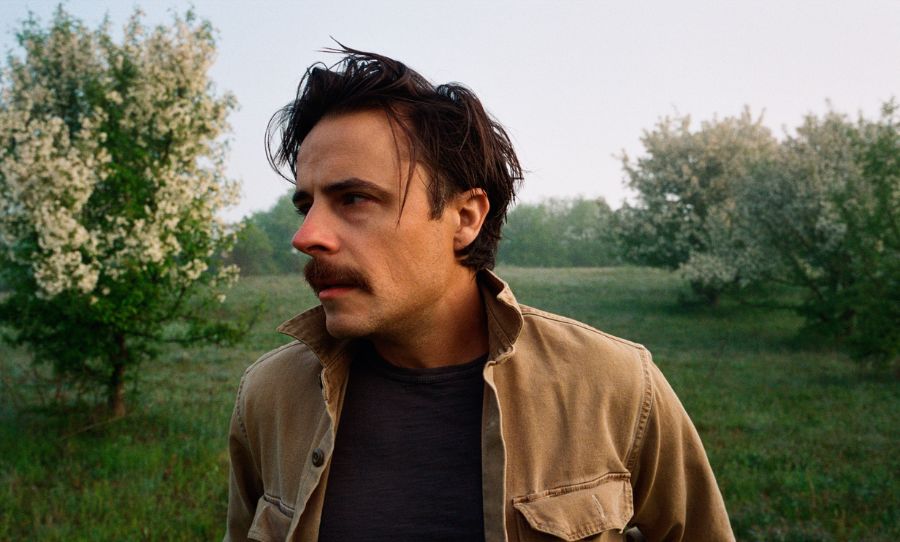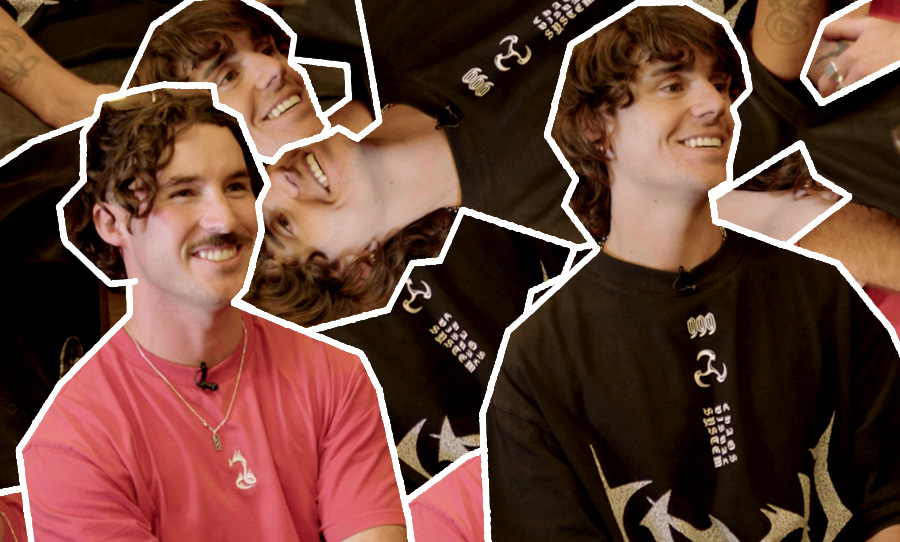“I start with a moment of inspiration,” The Bones Of J.R. Jones tells Happy Mag of the impetus behind new album, Slow Lightning.
The Bones Of J.R. Jones took listeners on a journey of self-discovery with Slow Lightning, a twelve-track odyssey which delves into the reaches of both the artist and his sound.
The debut album finds Jones — known offstage as Jonathon Linaberry — in moments of crisis and anxiety, as punctuated by a distinct blend of folk and indie rock.
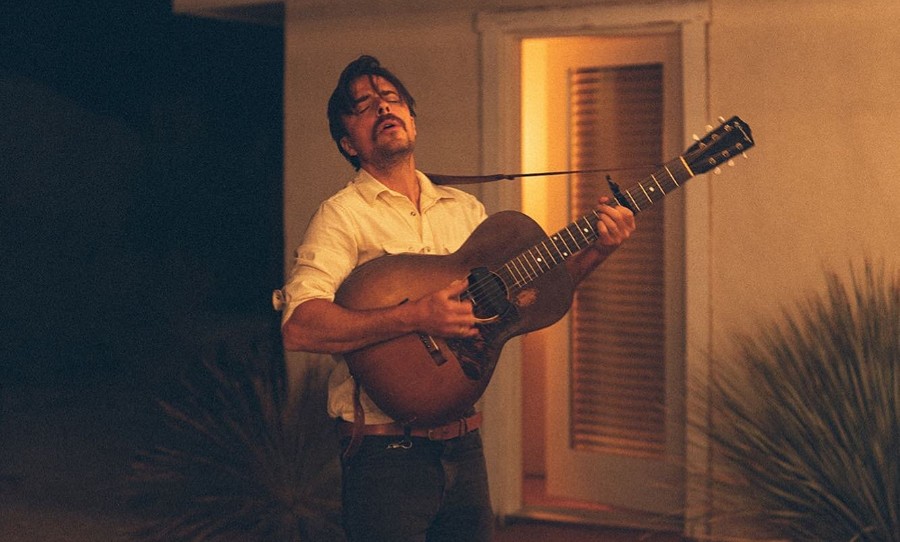
With such a sprawling project to his name, we caught up with Linaberry for an insightful yarn about his origins, inspirations, and the need for musicians to sometimes “go at it alone.”
Catch out full interview with The Bones Of J.R. Jones below, and scroll down to listen to his new album Slow Lightning.
HAPPY: What are you up to today?
LINABERRY: Currently enjoying a much needed day off after getting back from playing a festival out in Oregon. However, unfortunately most of my “day offs” involve me driving somewhere and this one is no different sadly. I am jumping in the truck today to drive south to DC to prepare for my next show.
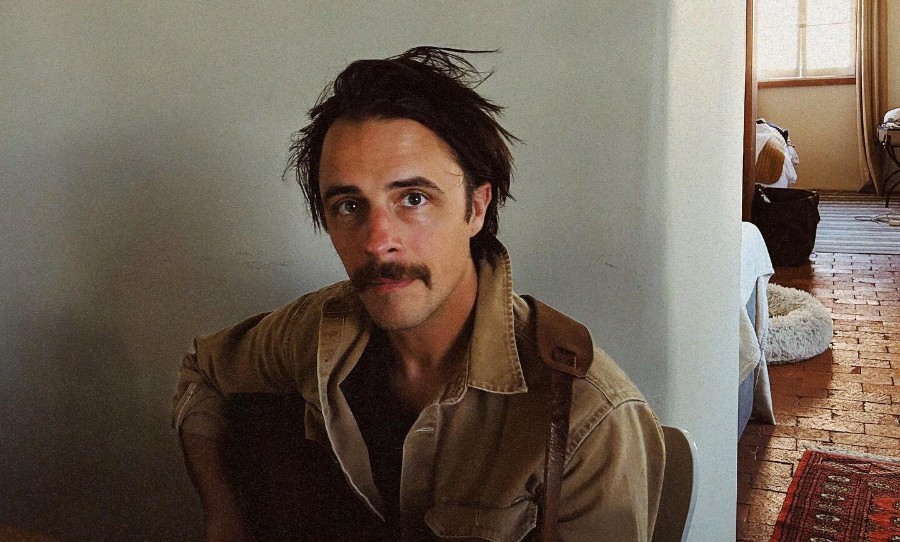
HAPPY: Tell us about where you are from? What’s the scene like in your neck of the woods?
LINABERRY: I live in a rural area in The Catskills. It’s mostly dairy farms and artists hat moved out of NYC because they couldn’t afford it.
I fall into that second lot. It’s a wonderful community. Small. Sleepy. Supportive. There isn’t much of a scene unless your scene is sitting around bonfires sipping on some local brew and eats. If that’s your bag, you’d fit right in.
HAPPY: Describe an average day?
LINABERRY: When I’m not on tour I am generally an early riser. Coffee and a newspaper sitting at a kitchen table before the rest of the house is up, is usually my move. I try to dedicate at least a few hours to song writing a day when I’m home.
Even if its drivel. I am a firm believer in working through the creative process and editing. I have never been fortunate enough to sit down and write a song in the moment. It’s always seems to draw it self out.
View this post on Instagram
HAPPY: Can you tell us about some of your earliest musical memories or influences that sparked your passion for music?
LINABERRY: Good question! It’s tough to say… I grew up in a musical household. My mother played classical piano and instilled that practice in my brothers and myself at young age.
BUT if I were to reflect on what might be the one moment I can recall from my childhood that made me fall in love with music it would have to be, Bruce Springsteen’s album Born In The USA.
I had a cassette player and wore that tape thin to point of it being useless. “I’m Going Down”…was my go to track for some reason.
HAPPY: Could you tell us about the inspiration behind the album and what you hope listeners take away from it?
LINABERRY: I usually start with a moment of inspiration for all my albums and then build off it. This one came off the song “The Good Life”.
I wrote that track first and let that take the lead for the others. For me it outlined the tone and shape of the record. I wanted something driving, hopeful and desperate all at the same time. Something that expressed being worn out and tired but hopeful.
HAPPY: Can you tell us about the creative/recording process for ‘Slow Lightning’
LINABERRY: Sure! I started writing most of these songs in late 2021. As always there was a lot of editing and a lot of demos/soundbytes/ideas that never made it beyond that stage.
Once the general idea was sketched out I brought in Kiyoshi Matsuyama and Daniel Sousa. We booked a five day session at a small studio in upstate NY. We ended up getting snowed in at the studio.
Mornings we would start a fire in the stove in the “live” room and set to work. After, principal recordings are done the real hard work starts… which is when knowing when to stop messing with the songs and let them live on their own. That took another 6 months or so. Haha.

HAPPY: Can you tell us a little about your collab with Matsuyama? How did this collaboration influence your creative process, and what did Matsuyama bring to the project?
LINABERRY: Kiyoshi Matsuyama is a dear friend and incredible musician/ collaborator. We worked together on my last EP, “ A Celebration”, which was so easy and fluid. He has the ability to help articulate some of my days in music theory that I can’t.
I have little actual musical training when it comes to theory. I write songs and know how they need to sound to satisfy me. Kiyoshi helps me do that. I will write out a paragraph as to where I think a record or song needs to live in our world and he helps me chart that path.
View this post on Instagram
HAPPY: Do you have any rituals or routines you follow when approaching the creative process for a new project or song?
LINABERRY: No rituals… but I am a masochist. I have a tendency to overplay songs until I hear them in my sleep.
HAPPY: Beyond music, are there any other forms of art, literature, or experiences that have significantly influenced your creative expression?
LINABERRY: OH MAN! Yes. I think it all informs my expression. A meal, a painting, a night out… it all offers input and it’s all about drawing out. The hardest part is figuring out WHY you are drawn to something. If you can distill that… I think that’s the birth of inspiration.
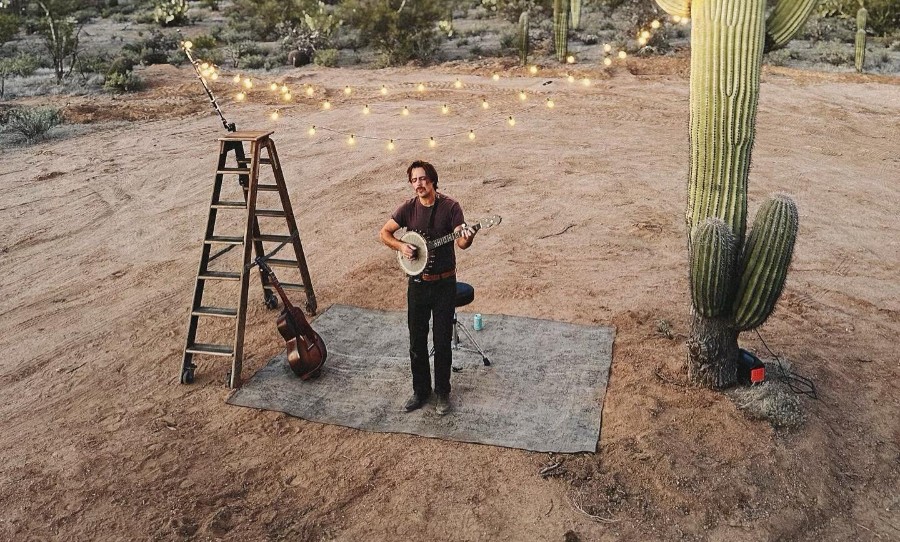
HAPPY: How do you approach the challenges and pressures that can come with being a working musician in today’s industry?
LINABERRY: Not very well to be honest. Not to sound too dramatic, but it often feels like you are swimming in the dark hoping to find the edge of the pool before you get too tired. Haha.
There’s no map to any of this and the support and infrastructure of record labels just doesn’t exist in a way it once did. Most musicians like myself go at it alone.
I have been incredibly fortunate to find a small team that helps me to try to make sense of the chaos. We are always learning.
And I am always making mistakes, I try to not take it too seriously, the business side of things anyways. I know myself well enough that I would do this regardless of it being my job. I have to.
HAPPY: Any gear that you can’t live without?
LINABERRY: I have a Kalamazoo KG-14 from 1938. It is absolutely my favorite guitar. The fit. The width of the fretboard. The boxy quality of its sound. It’s seen lots of love and only ever sounds better because of it.
View this post on Instagram
HAPPY: Lastly, what makes you happy?
LINABERRY: Writing music. Truly. I am at my happiest when I am demoing songs. It feels like the possibilities are endless and there isn’t the weight of recording on your mind yet. You are just creating and trying to draw a feeling that resonates somewhere. It’s a beautiful moment.
